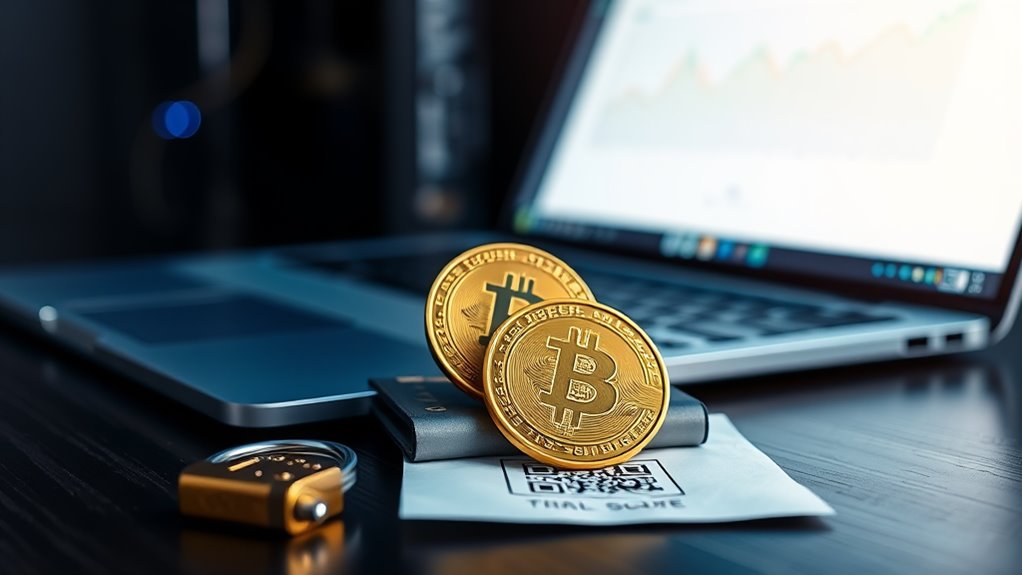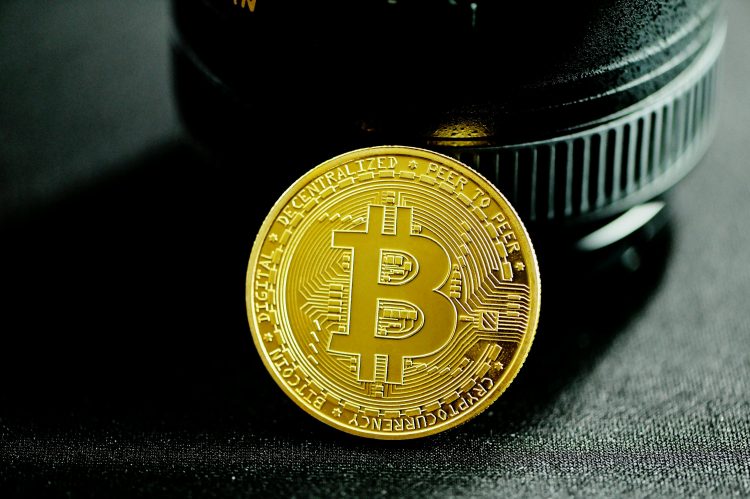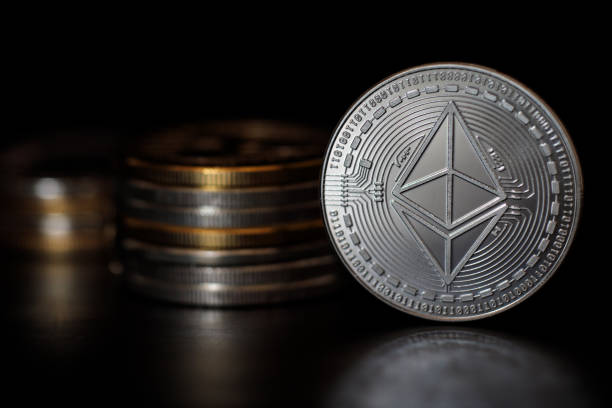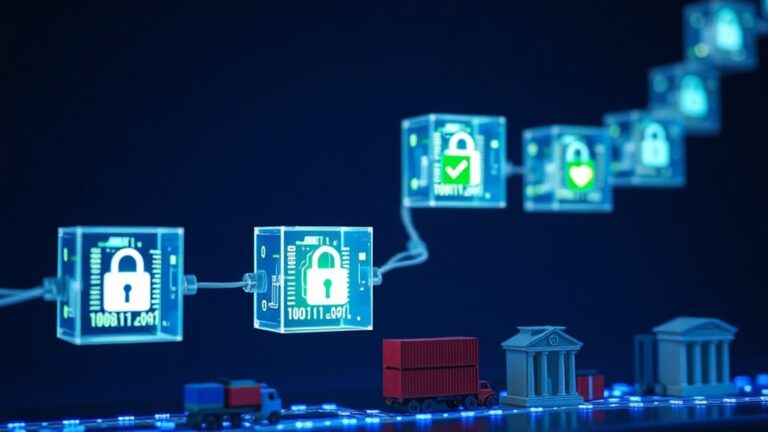Understanding Private Keys in Cryptocurrency
Note: This post may contain affiliate links, and we may earn a commission (with No additional cost for you) if you make a purchase via our link. See our disclosure for more info. The crypto world is constantly changing. This content is for informational purposes only and not financial, legal, or professional advice So, please verify the info on the cryptocurrency provider’s websites.
Private keys in cryptocurrency are like the keys to your house. Lose them? Good luck getting back in. These 64-digit hex codes let you own and control your digital assets, sign transactions, and prove you actually own your coins. Public keys? Share away! But your private keys? Never. Think of them as your secret sauce. Without them, your funds go poof. There's a lot more to this key game, and it gets even wilder…
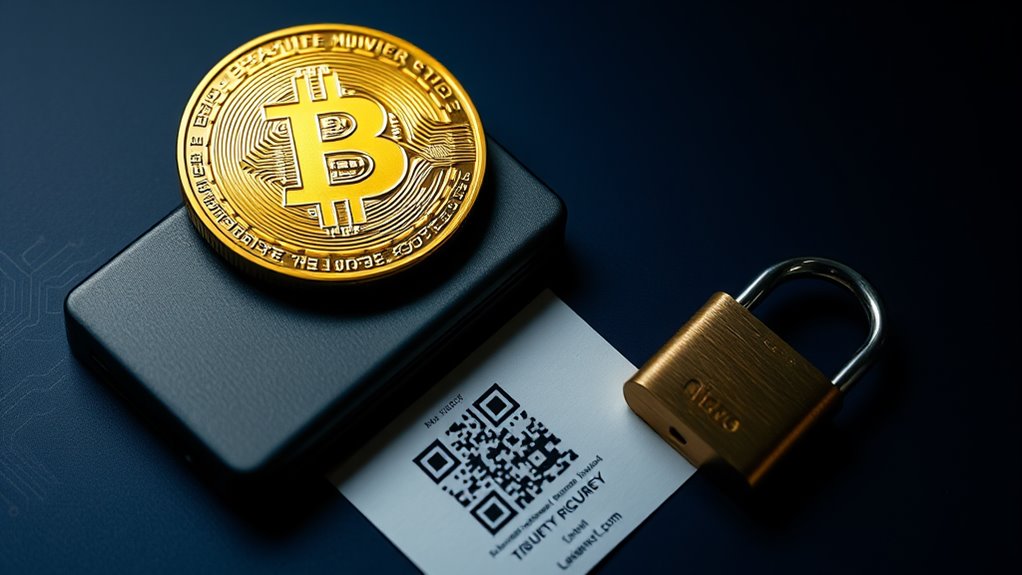
In the wild world of cryptocurrency, private keys are the unsung heroes, wielding the power of ownership and control over digital assets. These secret alphanumeric codes are like the holy grail of crypto. Without them, your funds? Gone. Poof.
Private keys authorize transactions and prove ownership of blockchain assets—basically, they're what separates you from being a crypto millionaire or a broke wannabe.
Private keys are the gatekeepers of your crypto fortune—own them or risk becoming just another broke wannabe.
Generated by wallets using cryptographic algorithms, these keys often come in a fancy 64-digit hexadecimal format. It sounds cool, but losing a private key means losing access to your precious funds forever. That's right, folks. No one is coming to save you. It's the ultimate control mechanism for your crypto world, like a password but way more critical. So, keep it together. Wallet software generates the keys using a random number for the private key, which is then used to produce the corresponding public key. Private keys are essential for signing transactions and proving ownership.
Now, storing these keys is a whole other ballgame. The best practice? Keep them offline. That's right—cold storage is your best friend. Hot wallets are like leaving your front door wide open in a sketchy neighborhood. Sure, it's convenient, but good luck when the hackers come knocking. Hardware wallets provide an excellent solution by storing your private keys completely offline while still allowing transactions through a secure bridge.
Never share your private keys. Seriously. It's like giving someone your house keys and then asking them not to redecorate.
On the flip side, we have public keys, which are math's best-kept secret. They're derived from private keys and let you receive funds without exposing your precious secrets. Think of public keys as your email address—safe to share.
But if someone gets their hands on your private key? Well, let's just say they'll have a field day with your funds.
When you make transactions, your private key creates a digital signature. This validates everything on the blockchain, proving you own what you claim. No middlemen involved. Just you, your private key, and your digital assets—until you lose that key, and then it's game over.
Frequently Asked Questions
Can I Change My Private Key After Generating It?
No, you can't change your private key once it's generated.
It's like trying to change a tattoo after it's inked—impossible! Wallets don't allow that kind of modification. They just generate new keys for new addresses.
If you lose your key, well, good luck! You'll need a backup to access your funds.
So, keep those seed phrases safe. Otherwise, it's a one-way ticket to losing your crypto.
Sorry, that's the hard truth!
What Happens if I Lose My Private Key?
Losing a private key? Welcome to financial heartbreak.
It's an irreversible disaster. Once it's gone, so are your assets—poof! High-profile cases show just how brutal it can get.
Think 7,002 BTC vanishing because of a forgotten password. And forget about calling customer service; there's no bank to bail you out.
Those coins? Still on the blockchain, just chilling, out of reach forever. Forget that backup? Good luck with that!
How Do I Securely Store My Private Key?
Storing a private key securely? Easy peasy, right? Wrong.
Hardware wallets are your best friends—like Ledger or Trezor. They keep things offline and safe.
Paper wallets? Sure, if you fancy a paper cut. Just don't spill coffee on them.
And encrypted USB drives? Solid choice, but don't lose them.
Oh, and forget online backups. Seriously, it's like inviting hackers to a party.
Keep it safe, or you might as well toss it in the trash.
Can Multiple Wallets Share the Same Private Key?
Can multiple wallets share the same private key? Absolutely, but it's a recipe for disaster. One key opens all those wallets, like a master key to your financial doom. Forgetting it? Good luck. Losing it? Say goodbye to your assets. Plus, hackers love a good challenge—why target one wallet when they can raid a whole bunch? Security risks are high, and the complexity? A nightmare. Keep it simple: different keys, different wallets.
Is It Safe to Share My Private Key With Anyone?
Sharing a private key? That's like giving someone your house key and saying, "Feel free to move in!"
It's a terrible idea. Once shared, it's game over for your assets. Trust goes out the window, and unauthorized transactions can happen faster than you can blink.
And if things go south? Good luck recovering anything. Spoiler alert: you won't.
Just keep that key to yourself. Seriously, it's not worth the risk.

